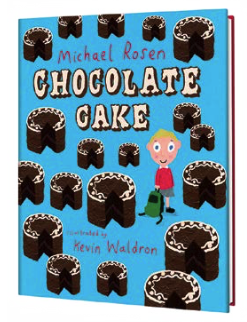Sunday 21 March marked World Poetry Day, a global celebration of poetry as a form of linguistic and cultural expression. As an artform, poetry is a powerful way of both processing and articulating complex feelings and experiences, which is why many of today's most celebrated poems were published at times of significant societal and personal change.

Poetry is, at its heart, an oral tradition and is therefore an obvious context for students to hone and develop their oracy skills. In the current circumstances, performance poetry provides a powerful opportunity for students to rediscover their voices and express their feelings about the turmoil of the last year.
Performance poetry provides an excellent context for students to practice presentational talk; talk that is carried out with the needs of a listener or audience in mind. It’s worth thinking carefully about how you can provide an authentic audience for your students’ poetry. Even creating opportunities for students to perform their poetry in front of parents or different groups of students elevates talk beyond the classroom, and you will be surprised at how the standard of students’ oracy is raised accordingly.
Providing students with an audience also sends an important signal about the value of what they have to say; that there is inherent worth in what they choose to communicate about themselves or the world around them. For many students, the realisation that people will listen to them, so long as they are brave enough to speak up is the greatest learning they will take from an opportunity such as this.
However, it is important to ensure students are well-prepared to perform for an audience – that they have had sufficient time to practice their poems, focusing on the physical and social-emotional aspects of the Oracy Framework. Build students’ confidence through games such as practicing and performing tongue twisters, or use peer reflection tools based on the Oracy Framework to encourage students to think critically about their own and other’s performances.
Not all poems need to be about grand, historic moments, often the most powerful and captivating poetry comes from thinking creatively about relatable everyday events.

Michael Rosen’s well loved poems Washing Up and Chocolate Cake provide great examples of this. Why not share and analyse these two poems with your class? How does Michael Rosen’s performance captivate his audience? You could then set students the challenge of writing and performing a poem about a household chore, or favourite snack. Puffin Schools has created a cross-curricular resource on the Chocolate Cake poem, with activities to get students thinking (and talking!) about the importance of vocabulary and linguistic devices in poetry.
Let us know how you’re celebrating World Poetry Day this week by tweeting us @voice21oracy #gettalkinginclass
© 2022 Voice 21. Voice 21 is a registered charity in England and Wales. Charity number 1152672 | Company no. 08165798